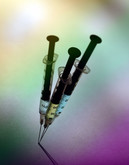Generics
Health Canada clamps down on GMP compliance
Canada’s federal health department Health Canada has written to its licensed drug and active pharmaceutical ingredients (API) manufacturers worldwide reminding them of their regulatory responsibilities and obligations. The department plans to step up planned and unplanned inspections of facilities, with the aim of taking timely and appropriate action where needed.
Ranbaxy fails to reverse FDA decision over Valcyte and Nexium
Indian generics company Ranbaxy has yet again failed in its bid to become the first company in the US to sell generic versions of the AstraZeneca blockbuster acid-reflux drug Nexium (esomeprazole) and F. Hoffman-La Roche’s cytomegalovirus treatment Valycte (valganciclovir). Launching the first generic copies of the drugs would have given Ranbaxy six months of exclusivity on the market.
Potential savings of Euros 72 million with more generics use in three therapeutic areas
A nationwide cohort study in Austria reported that substituting branded medications with drugs containing the same active ingredients (generics) could save considerable amounts of money. A study at the Center for Medical Statistics, Informatics and Intelligent Systems (CeMSIIS) at the Medical University of Vienna, Austria, in cooperation with the Main Association of Austrian Social Security Institutions, has calculated the potential savings from generic medications used in the treatment of common conditions such as hypertension, hyperlipidaemia and diabetes mellitus. The potential annual financial savings for health insurance companies stand at around 18 per cent, equating to tens of millions of Euros [1].
Drug companies seek to block generic version of ulcerative colitis therapy
The patent holder and manufacturer of Uceris (budesonide), a treatment for ulcerative colitis, have sued generics company Actavis for infringing their drug’s patents. Actavis recently filed an abbreviated new drug application (ANDA) with the US Food and Drug Administration (FDA) seeking approval to market Budesonide extended-release tablets, 9 mg.
Poor generics awareness among physicians in Saudi Arabia
A study looking at physicians’ knowledge, opinions and attitudes towards prescribing local generics in Saudi Arabia concludes that poor knowledge of local generics among consultant physicians working in government hospitals lies behind low prescription rates.
FDA cash to develop hard-to-copy generics
The US Food and Drug Administration (FDA) is offering US$850,000 to research teams working on generics development. Funds will be split between three programmes: bioequivalence testing for long-acting periodontal drugs; developing methods for assessing long-acting injectable generics; and dissolution methods for long-acting levonorgestrel intrauterine system. Funds may be extended for a further two years.
US court invalidates asthma drug patent
The US District Court of New Jersey ruled on 13 February 2015 that the patent protecting AstraZeneca’s inhaled asthma drug Pulmicort Respules (budesonide inhalation suspension) is invalid, opening the door to competition from generics.
Pfizer warns UK doctors not to prescribe generic Lyrica for pain
Pharma giant Pfizer is fighting hard to protect one of its brand-name products, this time its epilepsy treatment Lyrica (pregabalin).
Actavis receives generic opioid approval and plans name change
US generics maker Actavis announced on 20 February 2015 that it had received final approval from the US Food and Drug Administration (FDA) for its abbreviated new drug application (ANDA) for a generic version of Reckitt Benckiser’s Subutex (buprenorphine) sublingual tablets in dosages of 2 and 8 mg.
Substitution and adherence to antidiabetic generics in the elderly
When pharmacists switch from brand-name to generic drugs or between the same generics made by different manufacturers, this is thought may affect patient adherence to their medication. Therefore, Trotta and co-authors carried out a study to quantify the extent of switches between generic antidiabetics and to verify whether switching between different products of the same substance affects adherence [1].













